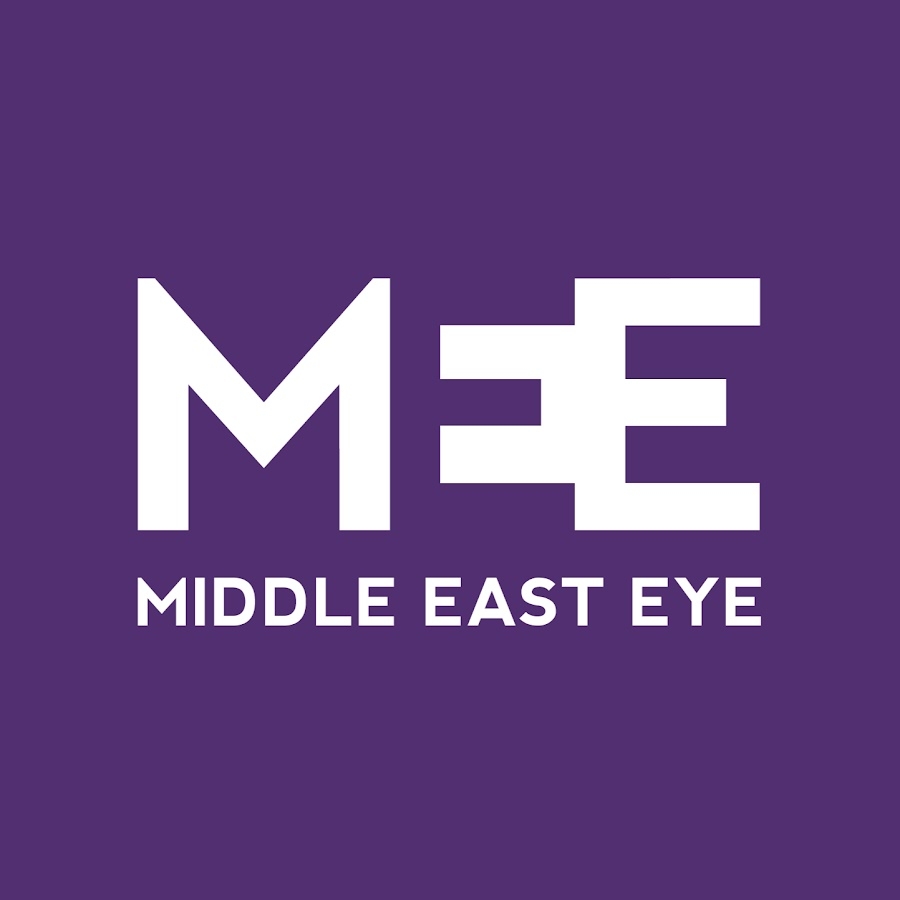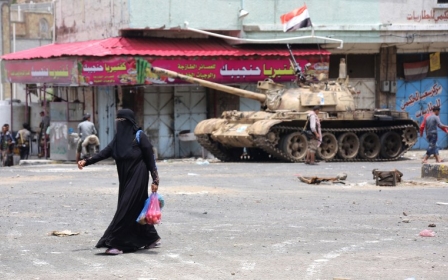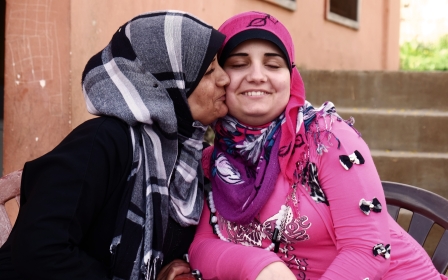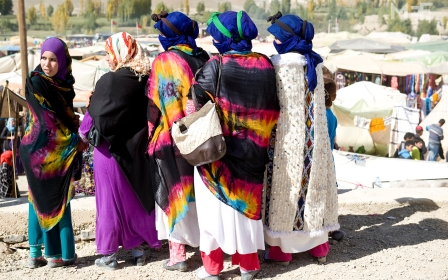Marriage can wait: Syrian teen in Jordan sets sights on starry career

ZARQA, Jordan - As a teenager obsessed with science, Reem Barakat grew up scouring NASA’s website, reading about everything from exoplanets to black holes. It was there Barakat found an online questionnaire for astrophysicists interested in NASA scholarships. Seeing nothing to deter her, Barakat filled it out and clicked the send button.
Months later, in February 2014, an international phone number popped up on the caller ID of the phone in Barakat’s family home. The caller identified himself as David, from NASA, and said he needed information regarding Barakat’s visa status and university degree.
“I was like ‘come on, do you know how old I am? I’m only 14,’” says Barakat. Discovering that he was speaking to an adolescent Syrian refugee and not an astrophysicist with a PhD, David gently told Barakat to reapply when she had a university degree. The call only lasted five minutes, says Barakat, but the hope it inspired endures.
Originally from Hama, Syria, Barakat no longer surfs NASA’s website. Instead, the 17-year-old, who arrived in Jordan in 2012, devotes herself to excelling in school in order to qualify for scholarships that will enable her to afford college tuition. She wants to study physics and eventually work as an astrophysicist for NASA.
Outwardly, Barakat’s otherworldly ambitions seem to make her unique compared to her peers in Jordan’s Syrian refugee community. But it is not her ambitions that mark her out, it is that she has been allowed to have them at all. The most recent school year for which statistics were publicly available in Jordan, 2013-2014, show that only 3,670 secondary school-aged Syrians, out of 81,842 registered, were enrolled. That is 4.5 percent. Attending university, let alone a career as an astrophysicist, is unimaginable for most Syrians in Jordan.
New MEE newsletter: Jerusalem Dispatch
Sign up to get the latest insights and analysis on Israel-Palestine, alongside Turkey Unpacked and other MEE newsletters
In Zarqa, a bustling city of 400,000 inhabitants, only 24 kilometres northeast of Amman, Barakat is witnessing a disturbing trend among her peers. Poverty and scant economic opportunities are suffocating the ambitions of a populace already reeling from the Syrian conflict, now in its fifth year. Consequently, many Syrian youth living in Jordan have abandoned their education, seeing no future in it. An increasingly common alternative, mostly for girls, is early marriage - but not for Barakat.
Barakat’s mother, Um Ghassan, married at age 12 in Syria, and this experience convinced her that her daughter should be allowed to wait.
“Being married at age 12 prevented me from continuing my education in regular schools,” says Um Ghassan, 37. “It is great to be a mother and housewife, but this is not everything I aspired for.”
By sheltering her daughter from the prospect of early marriage, Um Ghassan has enabled Barakat’s ambitions to flourish. Now Barakat’s family, consisting of her parents, older brother Fadi, and younger sister Nour, are determined to help her finish her education, despite the economic and social pressures facing them as refugees
“Marriage is something for you after you’ve achieved what you want,” says Um Ghassan.
But while Barakat dreams of NASA, she estimates that 60 percent of her female classmates are considering a real-life black hole: dropping out of school and getting married. And this figure does not count those who have done so already.
An early marriage epidemic
“It’s a common argument to hear that early marriage was a widespread phenomenon back in Syria before the war, but now we can see it happening more and more as a coping mechanism,” says Samar Muhareb, the director of Arab Renaissance for Development and Democracy-Legal Aid (ARDD), a Jordanian NGO that uses litigation and advocacy to promote and protect human rights.
ARDD often finds itself battling early marriage as it looks to provide humanitarian aid to marginalised groups in Jordan. Through these efforts, Muhareb and her colleagues discovered Um Ghassan and Barakat, a pair they now tout as an anti-early marriage success story. But such stories are rare.
Estimating the scope of the problem is difficult, says Muhareb. Many marriages occur in rural areas and are undocumented. But from ARDD’s work in Zaatari Camp, a snapshot develops.
“The average is 30 marriages per day; 20 of them are early marriages,” says Muhareb. “And this is only in Zaatari.”
The legal marriage age in Jordan is 18, but Sharia judges may authorise marriages at ages 15-17. It is these unions that ARDD classifies as early marriages.
The last time UNICEF released statistics, in 2014, 32 percent of refugee marriages in Jordan involved a girl under 18. These marriages occur for simple reasons, explains Muhareb. “You have youth, young men and girls, who see it as a sort of protection.”
Unlike Barakat, most Syrian youth do not see alternatives to their bleak situations, nor do parents encourage them to wait. Families see marrying off their daughters as a way to ease their financial burden and a means to secure the girl’s future in a way that remaining in school cannot. “There is a wisdom from within the community. When you listen to them there is some rationale,” says Muhareb.
But the repercussions of early marriage cannot be overstated, stresses Muhareb. It increases the risks of girls being victims of domestic violence, invites immature pregnancies, and can introduce psychological problems such as depression, anxiety disorders, and post-traumatic stress.
Early marriage also virtually assures the end of a young woman’s education. Even a gifted girl like Barakat would be forced to drop out by her husband, says Muhareb, as he would not see any value in her continuing her education.
When this occurs, not only is individual talent wasted, but society ultimately suffers as well. This generation of Syrian youngsters will likely be tasked with rebuilding their war-torn nation, but many of them are abandoning school in favour of alternatives like early marriage or illegal jobs. When the time comes to rebuild, they might not possess the necessary skills if these trends continue.
Made worse by the war
Before the war, an early marriage in Syria did not always guarantee the abrupt end of a girl’s education. “I got married when I was finishing high school,” says Noran (who does not want to be identified by her surname), a 20-year-old from Damascus now living in Jordan. “I didn’t even take a single breath to sit and realise what I might be getting myself into.”
Married at 17 in Syria, Noran’s engagement was hastened by the war, but she was still able to complete secondary school and planned to attend university. That ambition dwindled when financial hardship and new familial responsibilities materialised. Then the ambition died when the war forced Noran and her husband to flee to Jordan.
“Before I got married all I did was study, but now that I'm married and away from home living in Jordan as a refugee, I have no idea how to cook or clean and do household chores. I've had children and I’m all alone with no one to help me,” says Noran.
Intercepting early marriage
“The biggest issue we are facing with the early marriage problem is their lack of ability to make the right decision for themselves,” says Muhareb. “You find the fathers are making the decision on behalf of the girls, and the boys in certain cases, to get married.”
To combat early marriage and its fallout, ARDD implements programmes and initiatives in affected communities designed to empower individuals and increase communication within families. “You have to empower the girl, while at the same time you have to deal with the family who is making the decisions for the girl,” says Muhareb.
Through an ARDD empowerment training programme, called Syrian Voices, Um Ghassan found the motivation to make her stand against early marriage in her home. Um Ghassan always wanted to be active in her community, but the combination of her early marriage and cultural norms in Syria prevented her from realising her ambition. “[Society] there can’t accept a woman who is active in the community,” says Um Ghassan.
In Zarqa she has found opportunities like ARDD trainings and has become an active member of the community. Her husband, Magdi Barakat, 48, also became involved. After initial reluctance to allow her out into their new community, Um Ghassan convinced Magdi to attend an ARDD empowerment training with her and ever since he has been more supportive of his wife’s activism and his daughter’s ambitions.
Um Ghassan currently volunteers as a life-skills coach with the International Medical Corps [IMC], where she counsels and mentors local youth. Through her work, Um Ghassan encounters many of her daughter's classmates, including one who recently tried to commit suicide after becoming betrothed. Experiences like this solidified Um Ghassan’s resolve to continue encouraging Barakat to pursue her studies.
“They say ‘we can support you as much as we can,’” says Barakat. But as much as they can still might not be enough.
Higher education out of reach
Data is unavailable for Jordan, but worldwide less than one percent of refugees are enrolled in tertiary education. Cost is a big reason why. Syrian students pay foreigner rates to enrol in universities, costing an estimated US$19,000 dollars over four years, reports University World News. Barakat’s parents, like most Syrian refugees, are legally prohibited from working, making that sum impossible to afford. According to UNHCR, 90 percent of Syrians in Jordan that live outside of camps subsist on only US$87 per month.
So Barakat, with one year of secondary school remaining, needs another way to fund university. “I just focus on school because I want to get a scholarship.”
Many higher education scholarship programmes exist specifically for Syrian refugees, but according to World Education News & Reviews demand outpaces the supply. Against this backdrop Barakat toils, hoping her aspirations will lead somewhere.
Aiming for the stars
Despite her reverence for NASA, Barakat admits that she thinks they sometimes get it wrong. About the origins of the universe, before the Big Bang, Barakat says, “They say that we come from nothing, but I don’t believe in that.”
“If you have a box, inside it is nothing, would it be possible in a few years to have a butterfly inside it, or a cat or something like that? It’s impossible,” explains Barakat. “So when they say we came from nothing, it’s not really logical.”
Like a butterfly in an empty box, Barakat comes from a place where many see nothing, where hope is not really logical. But because of her mother, a yearning ambition bloomed within Barakat, giving her hope that beyond Zarqa, beyond Jordan, away from the war she left behind, lies a better future, glittering like a star above. If only she could reach out and grasp it.
This article is available in French on Middle East Eye French edition.
Middle East Eye delivers independent and unrivalled coverage and analysis of the Middle East, North Africa and beyond. To learn more about republishing this content and the associated fees, please fill out this form. More about MEE can be found here.




